
About JAPAN QUEST
A quiz-based test supported by the Agency for Cultural Affairs to comprehensively learn about Japanese culture
The Japanese islands, with nearly 70% of its land area covered by forests, has cultivated the foundations of Japanese culture by benefiting from the richness of nature and the four seasons. The Japanese people have naturally developed a "spirit of harmony" that values harmony, respect for others, and courtesy, even if it means putting one's own needs on the back burner. We hope that you will be an ambassador of the "spirit of harmony" in your home country.
The more you learn, the more you enjoy Japan!
"Japan specialist test" is categorized into "Clothing, Food, and Housing," and you can find your area of interest in the trial test, so you can learn the content that matches your interest and level.
The questions cover a wide range of topics from Japanese manners to traditional culture, making travel in Japan even more enjoyable!
JAPAN QUEST is a “useful” certification test even after

-
Various topicss
Japan Quest covers a wide variety of topics categorized under Japanese "Clothing, Food, and Housing", including Japanese spirituality, etiquette, history, art, food culture, and subcultures.

-
Ease of understanding and enjoyment
In order to lower the barrier to entry, esoteric terms and specialized knowledge are avoided, and explanations are provided in easy-to-understand words. The three-way quiz-style test allows you to learn while having fun.

-
Different difficulty levels
Questions are available for a wide range of levels of difficulty, from beginner to advanced. This allows you to proceed according to individual abilities.

-
Practical Approach
The test emphasizes not only the cramming of knowledge, but also the actual experience of Japanese culture. This leads you to a profound experience after gaining knowledge.
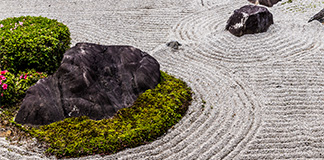
-
Promoting to foreigners
Japan Quest incorporates elements that are appealing to foreigners and also serves to introduce Japanese culture to the world at large. It is also used as an opportunity to deepen cross-cultural understanding.

-
Consideration for the environment
By becoming more sensitive to the changes in the four seasons and valuing harmony with nature, you will increase your awareness of the environment. It also promotes sustainable lifestyles.
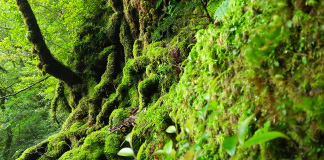

from August 2024
In the " Japan Quest ", questions are divided into the categories of "Clothing", "Food", and "Housing".
After the test, descriptions are provided, so you can learn more than just solving questions.
How to take the JAPAN QUEST
Member registration is required to take the Japan Specialist Test. If you already registered as a member, please log in.
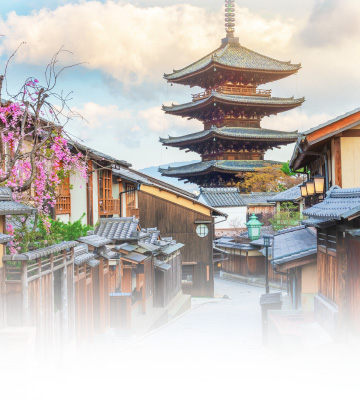
About each level

-
Level 1
Only those who have passed Level 2 may take the test. Comprehensive in-depth knowledge of Japan is tested, ranging from Japanese cultural history, traditional culture, and traditional events to contemporary Japanese culture and subcultures.
-
Level 2
Only those who have passed Level 3 may take the test. It incorporates the essence of traditional culture and can be used with confidence to describe the culture and characteristics of each region, as well as international communication.
-
Level 3
By learning the basic origins behind Japanese culture, the content can be used in daily life to make everyday life more enjoyable. This course will nurture your identity as a Japanese person.
Each category on "Clothing, Food, and Housing" provides three questions.
You can choose which category you want to take and it’s free.
You can enjoy learning with descriptions by animation.
Overview of each level
-
Level 1
Master of Japanese CultureTest Requirement Persons who have passed Level 2 Level of questions Wide range of questions from all genres of Japanese culture Question Format Multiple-choice questions Number of questions 40 Duration 60 minutes Examination fee 5,500 yen (tax included) Passing standard 70% -
Level 2
In-Depth Study of Japanese CultureTest requirement Persons who have passed Level 3 Level of questions Questions on the history of Japanese culture, traditional culture, and seasonal relics, etc., which are necessary for international communication. Question format Multiple-choice questions Number of questions 30 Examination duration 45 minutes Examination fee 3,500 yen (tax included) Passing standard 70% -
Level 3
Introduction to Japanese CultureTest requirement Registered members Level of questions Questions about basic Japanese culture, customs, and manners in Japan Question Format Multiple-choice questions Number of questions 20 Duration 30 minutes Examination Fee 2,200 yen (tax included) Passing Standard 70%
Becoming a NIPPON Specialist comes
with a lot of benefits!
In addition, you will receive great benefits such as invitations to members-only events and special offers in Japan. (The contents of the benefits vary depending on the level of the NIPPON Specialist certification.)
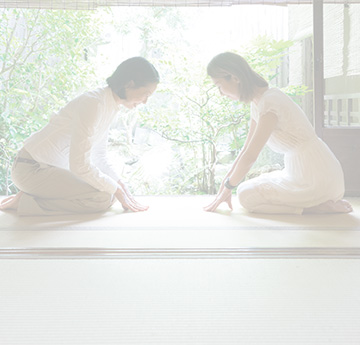
Let’s try sample questions!
Here are some sample questions from the Japan Quest coming with each level in Clothing, Food, and Housing.

“Koromo”
Japanese Clothing
Examples: Level 3
- a) For formal events
- b) To provide a clean, relaxed fit
- c) For going out
Examples: Level 2
- a) Dark blue
- b) Bright red
- c) Pale pink
Examples: Level 1
- a) Gorgeousness
- b) Modesty and spirituality
- c) Simplicity

“Shoku”
Food
Examples: Level 3
- a) Because Japanese food is nutritionally balanced and contributes to longevity.
- b) Because Japanese food has a culture that emphasizes seasonality and makes the most of regional ingredients.
- c) Because Japanese food is one of the oldest cooking methods in the world and its history is recognized.
Examples: Level 2
- a) Food for physical training
- b) Vegetarianism based on Buddhist precepts
- c) Food for enjoying seasonal changes
Examples: Level 1
- a) Diversity without relying on a single taste
- b) Maximizing the natural taste of ingredients
- c) Harmony between physical and mental health

”Ju”
Housing
Examples: Level 3
- a) Because there are strict penalties by law
- b) Because of the cultural value of "beautification"
- c) Because cleaners are very efficient
Examples: Level 2
- a) Sleeping
- b) Display of artworks
- c) Eating
Examples: Level 1
- a) The spirit of pursuing gorgeous and gorgeous beauty
- b) The spirit of valuing temporary trends
- c) The spirit of valuing beauty within simplicity and imperfection
A community where
people deepen their knowledge
of Japanese culture
「Sakura」
Coming soon…
Communication deepens with knowledge
Japanese culture community "Sakura" is a new social media specialized in Japanese culture.
It can be used as a place for users to exchange information at each level.
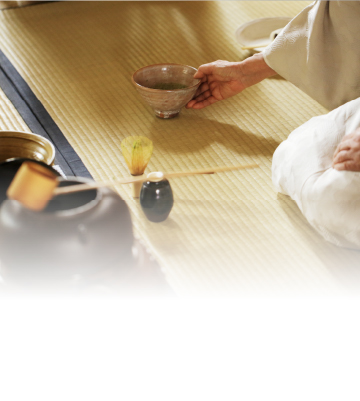
Supervisors
-
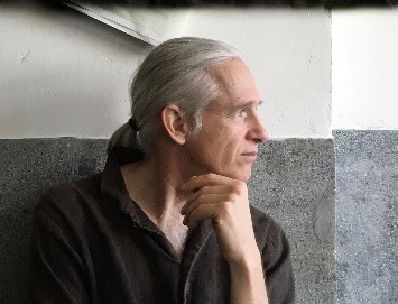
Dr. Everett Kennedy Brown
(General Supervisor)
Japan Bureau Chief of the EPA, a member of the public-private expert panel on Cool Japan for the Prime Minister's Office and METI, and a cultural promotion counselor for various ministries and agencies.
Part-time lecturer at the University of Tokyo's Research Center for Advanced Science and Technology. -

Mr. Koichi Tomizawa
(Japanese Food Supervisor)
The Japanese Cuisine Goodwill Ambassador
Director, Executive Chef and Manager of "Japanese Cuisine Yoshimura"
He has contributed to the development of the Japanese cuisine and was awarded the "Contemporary Master Craftsman" in 2017 and the "Medal with Yellow Ribbon" in 2020. In addition, he serves as Chairman of the Tohyu Chef Introduction Institute of Japan Chef Tohyu Sekiryo Shinkokai and Chairman of the Tokyo Association of Japanese Culinary Technicians, a general incorporated association of the National Federation of Japanese Culinary Technicians Associations.He is actively involved in activities to promote Japanese food culture in Japan and abroad through Japanese cuisine. -
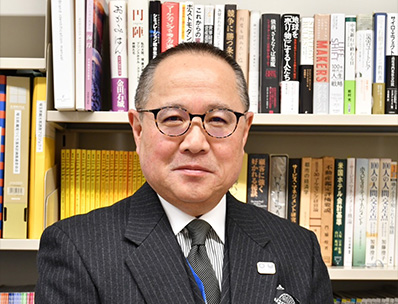
Mr. Kazuhiro Tamai
(Hospitality Culture Supervisor)
Professor, College of Tourism, Rikkyo University
Former President of Hotel Keikyu Corporation and former General Manager of Hotel Pacific Tokyo.
He has served as the chairman of the Tourism Industry Innovation Study Committee of the Japan Tourism Agency, a member of the MICE International Competitiveness Enhancement Committee of the Japan Tourism Agency, and the chairman of the MICE International Competitiveness Enhancement Planning Subcommittee of the same committee, among other external committees mainly related to tourism.
Our thoughts
The Japanese islands, with nearly 70% of its land area covered by forests, has cultivated the foundations of Japanese culture by benefiting from the richness of nature and the four seasons.
In the past, the Japanese were agricultural people, valued "harmony" and possessed a sensitivity (aesthetic sense) that respected others and valued courtesy, even if it meant putting one's own needs on the back burner. It is no exaggeration to say that this kind of honest consideration for others and sincere approach to things is the underlying force behind leading cultural trends in the world, including manufacturing.
In addition, it is not uncommon for subcultures such as video games and animation, which are not limited to traditional culture, to have an impact on the world beyond the boundaries of Asia as Japanese content. We believe that such ideas, spirituality, and consideration for others are very important elements for us human beings in today's technologically advanced world.
We hope that by feeling the heart of the Japanese people and experiencing Japan, we can serve as a stepping stone to realize a sustainable society in which people living today can cooperate with each other across borders.
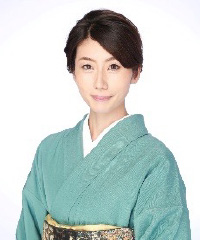
General Incorporated Association for Japan specialist test
Representative Director Yuka Saiki
Social Contribution
Japan Specialist Test is a social contribution project.
"JAPAN QUEST Essential Japanese culture Test " is a social contribution project.
A portion of the examination fee will be donated to local governments and NPO that are working for the continuation of Japanese culture and traditional crafts, the funds will be used to finance the activities of these organizations.








